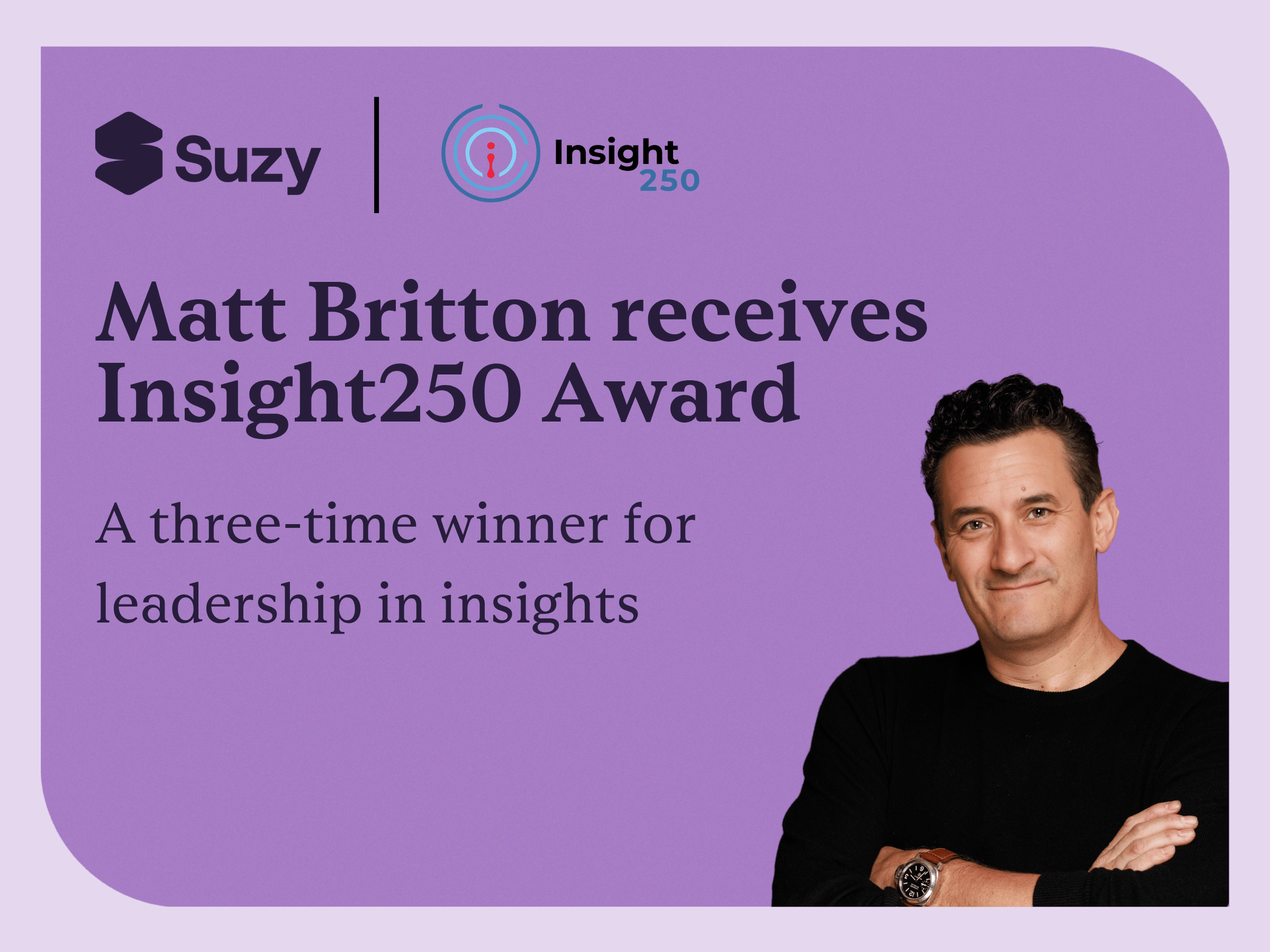How can brands leverage sustainability and ESG initiatives to build consumer trust and achieve long-term success in today's eco-conscious market?
By: Ann Schirrmeister, Former Senior Research Manager
In today's market, sustainability and ESG (Environmental, Social, Governance) are more than just buzzwords—they're critical components of brand strategies. A recent study revealed that nearly 80% of consumers in the U.S. and Canada prioritize sustainability with a significant portion willing to pay a premium for eco-friendly products.
And I’m one of those consumers. Just last month, I switched to a new skincare brand solely because of their commitment to sustainable sourcing and cruelty-free testing. Experiences like mine highlight the immense power of sustainability and ethical practices in shaping consumer choices.
This significant shift in consumer behavior underscores the need for brands to integrate sustainability and ESG into their core strategies to build trust and achieve long-term success. In this article, we'll explore the growing importance of sustainability in branding, look at real-world examples of effective ESG initiatives, and discuss how market research is instrumental in developing these transformative strategies.
The Growing Importance of Sustainability in Branding
Consumers today demand more from brands than ever before. They seek authenticity, transparency, and ethical practices. This shift is driven by increased access to information and a greater awareness of global challenges. Brands that recognize this shift and respond effectively can build deeper connections with their customers.
Sustainability has emerged as a crucial market differentiator. Brands that integrate sustainable practices into their operations and communicate these efforts transparently are more likely to earn consumer trust and loyalty. For example, companies that use sustainable materials, reduce their carbon footprint, and ensure ethical labor practices can be perceived more favorably.
Moreover, the focus on sustainability is influencing not only product offerings, but also brand narratives. Companies are telling stories about their sustainability journeys, from sourcing raw materials to supporting local communities. These stories resonate with consumers, creating a powerful brand image that goes beyond traditional marketing.
Exemplary Brands in Sustainability and ESG
Brands that wholeheartedly embrace sustainable practices can distinguish themselves amidst a crowded marketplace. Patagonia is a prime example. Its unwavering commitment to environmental conservation has not only enhanced its brand reputation but also fostered customer loyalty and substantial sales growth over the years. Patagonia's environmental activism integrates sustainability into every aspect of its business, from product design to supply chain management.
IKEA has also revolutionized its approach by embedding sustainability into its core operations. By sourcing materials responsibly, investing in renewable energy, and promoting a circular economy, IKEA exemplifies how robust ESG practices can enhance brand reputation and attract socially conscious consumers.
Similarly, Unilever, through its Sustainable Living Plan, aims to reduce its environmental footprint while increasing its positive social impact. By focusing on sustainable sourcing, reducing waste, and improving community health, Unilever has not only enhanced its brand reputation but also driven product line growth. This initiative demonstrates that comprehensive ESG practices can lead to significant business benefits.
Learn more about sustainability for CPG Brands
Beyond Environmental Impact: The Holistic Approach to ESG
Sustainability isn't just a box to check in marketing; it's a fundamental ethos that must be ingrained throughout an organization. Brands that fail to authentically integrate ESG practices risk damaging their brand image when consumers uncover inconsistencies. And make no mistake, if those inconsistencies exist, consumers will notice! Today’s consumers are increasingly skeptical of greenwashing—superficial efforts that pay lip service to sustainability without real impact. This skepticism means that brands must be transparent and genuine in their ESG commitments to maintain credibility and trust.
ESG provides a comprehensive framework that extends beyond environmental sustainability to encompass social responsibility and governance practices. Adopting a holistic ESG approach involves addressing issues such as fair labor practices, community engagement, diversity and inclusion, and robust corporate governance. Brands that embody these principles not only mitigate risks but also build trust and resilience in their operations.
For instance, a brand's commitment to fair labor practices can enhance its reputation and foster loyalty among ethically-minded consumers. Community engagement initiatives can strengthen local ties and create a positive brand image. Diversity and inclusion efforts can attract a broader customer base and improve internal culture.
Market Research: The Backbone of Sustainable Strategies
To effectively integrate sustainability and ESG, brands must first understand what their consumers value. Market research plays a critical role here. It helps brands identify key trends, measure the impact of their ESG initiatives, and tailor their strategies to meet evolving consumer expectations, ensuring their efforts are both genuine and impactful.
Suzy's Role in Empowering Sustainable Brands
At Suzy, we provide the tools brands need to develop and refine their sustainability and ESG initiatives. Our platform offers real-time consumer insights through methodologies such as surveys, focus groups, and in-depth interviews, empowering brands to understand and meet consumer expectations.
Take, for example, a major consumer goods company that leveraged Suzy’s advanced analytics to uncover a preference for eco-friendly packaging among their target audience. They transitioned to sustainable materials, significantly boosting their brand reputation and customer loyalty.
A national nonprofit organization also used Suzy’s creative testing tools to enhance its environmental campaigns. By gathering targeted consumer feedback, they pinpointed which campaign resonated most deeply with their audience, resulting in more impactful outreach efforts.
Failing to test initiatives can lead to significant missteps. Remember when H&M launched its 'Conscious Collection' promoting sustainable fashion? The campaign faced significant backlash from consumers and environmental activists who accused the brand of greenwashing. Critics pointed out that while the collection featured some sustainable materials, the majority of H&M's overall production practices remained unchanged, relying heavily on fast fashion methods that are harmful to the environment. Thorough market research testing would have uncovered that consumers would notice these inconsistencies and be skeptical of the brand's true commitment to sustainability, preventing a damaging backlash.. Suzy's research tools help brands avoid such pitfalls, ensuring their ESG efforts are well-received and effective.
The Road Ahead: Trends and Predictions
Current trends emphasize transparency, ethical sourcing, and the circular economy. Brands excelling in these areas are poised to gain a competitive edge as consumers increasingly prioritize sustainability in their purchasing decisions. As regulations tighten and expectations evolve, the importance of sustainability and ESG will only grow. Brands that proactively embrace these principles will thrive and lead in the market.
To stay ahead and navigate this dynamic landscape, it’s crucial for brands to remain agile and informed. Leveraging comprehensive market research tools like those offered by Suzy is essential for staying informed. By understanding and meeting consumer expectations around sustainability, brands can build trust, drive growth, and positively impact the world. Embracing these practices not only ensures compliance with future regulations but also solidifies a brand’s reputation as a leader in sustainability.
Using Suzy’s tools, brands can confidently navigate the future, aligning their strategies with consumer values and securing long-term success. See how our consumer research platform works and book a demo with our team today!
.webp)
.avif)






.avif)